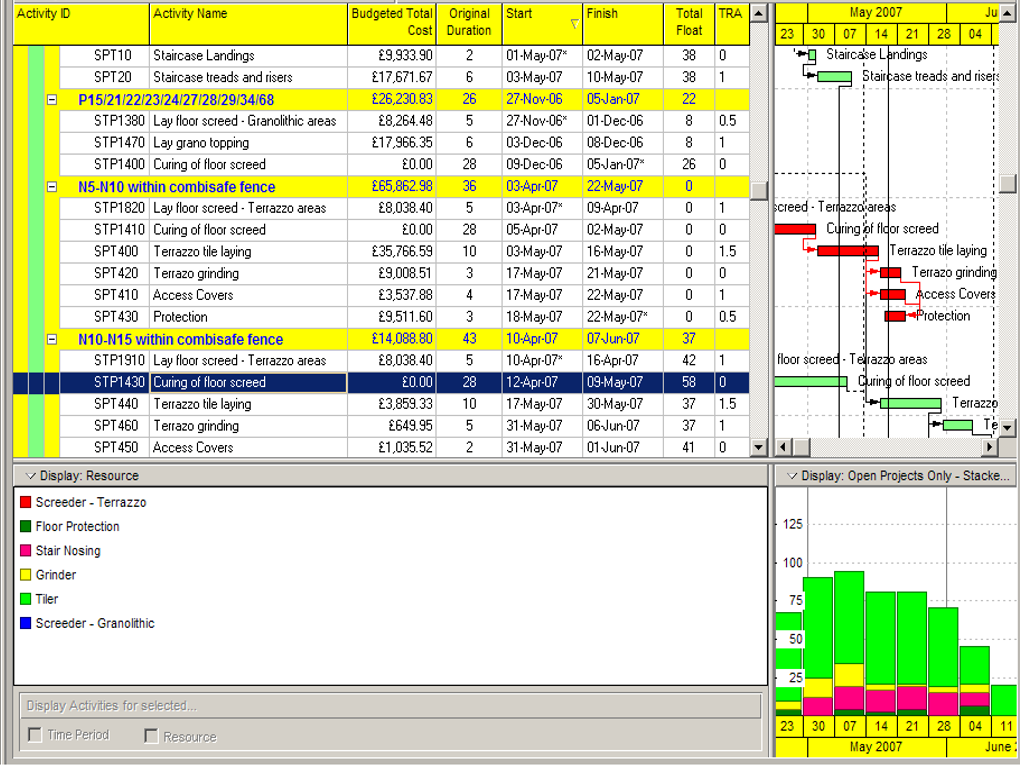
For many people trying to understand a contract can appear to be a bit daunting and even unnerving given some of the unfamiliar language that is often used. NEC contracts have tried to change that perception by using plain English with no legal phrases. They are intended to be a management tool to help deliver the project rather than just a claims tool used by commercial and legal people within the team.

People need to be familiar with the whole contract (and you need to read all of it to then know which elements are relevant to your particular role and also those obligations and duties imposed on other parties to the contract). In this bulletin we have picked out what we consider to be the ten most important standard ECC clauses (and also applicable to ECS) that need to be understood and the reasons why. They are shown in chronological order as they appear in the contract numbering.
1. Clause 10.1: “the Parties, Project Manager and the Supervisor shall act as stated in this contract”. This simply means that everyone should do what the contract says, an important reminder in the very first clause of the contract which sets the tone. Sounds simple, but you would be amazed how often people forget to apply that very simple yet fundamental principle. Notice clause 10.2 has not featured within our top ten, which is the obligation to act in “a spirit of mutual trust and cooperation”. Whilst an important underlying principle, it is the 10.1 obligation that first and foremost needs to be followed.
2. Clause 11.2(26): “Disallowed Costs”. Whilst only relevant for ECC options C/D/E/F, it is very important for Contractors to understand that whilst they will be paid each period their Defined Cost (in simple terms actual cost), there are certain elements that if incurred would be disallowable. This clause lists costs that the Project Manager could disallow from any assessment. Falling foul of anything listed within this list is probably the biggest risk to a Contractor (that in essence is otherwise a cost reimbursable contract).

3. Clause 13.1: “each communication the contract requires is communicated in a form which can be read, copied and recorded”. This means that verbal instructions are not valid and should not be followed. People may feel pressured to act on a verbal instruction and think that “in a spirit of mutual trust and co-operation” they must follow any such verbal instruction. However, once again in accordance with clause 10.1 all Parties should do what the contract says, and clause 13.1 states any such instruction has to be in writing. In this age of technology, it should be very quick and easy to give such a written instruction, with clause 13.2 also emphasising any such communication should be issued within the system stated in the Scope (e.g. CEMAR).
4. Clause 14.3: “the Project Manager may give an instruction which changes the Scope”. Not the Supervisor, not someone senior from the Client’s team, only the Project Manager (or anyone they have formally delegated powers to and communicated that fact in writing in accordance with clause 13.1). It confirms that Scope can be changed during the life of the project, but only ever instructed by the Project Manager named in contract data part 1 (or any delegate that has been confirmed in writing).
5. Clause 15.1: “Contractor and the Project Manager give an early warning by notifying each other as soon as either becomes aware”. These are for elements that could impact (in simple terms) time, cost or quality. The principle is to get potential issues on the table early so they can be talked about, allowing an opportunity to avoid or at least mitigate the potential impacts (for all of the parties involved, including the Contractor). This should all be without needing to focus on whose liability that particular issue is.
6. Clause 20.1: “the Contractor Provides the Works in accordance with the Scope”. A simple yet clear reminder of exactly what the Contractor should do at any point in time. Unless there is a written instruction by the Project Manager to change the Scope, the Contractor should only ever be doing what the Scope states they are to do. Again, this emphasises why verbal instructions contradicting the Scope should not be followed. It also reinforces that anything that is provided that does not comply with the Scope will be a defect and will need to be addressed.
7. Clause 27.3: “Contractor obeys an instruction which is in accordance with the contract given by the Project Manager”. This is the only time the contract uses the word “obey” to give emphasis that it should be followed. This applies in particular to instructions to do something that changes the Scope e.g. install additional works. This clause makes it clear that the Contractor has to proceed with these works and cannot delay commencement until the Project Manager has accepted the associated quotation. Many Contractors complain they are having to “proceed at risk”. It is understandable that they would rather know how much they are going to be paid before they do the work, but they simply do not have that luxury. If the Project Manager assesses the resultant compensation event quotation lower than the Contractor thinks it should be, then the Contractor has the option of the dispute process to follow in the contract.

8. Clause 31.2: “the Contractor shows on each programme issued for acceptance the following”. This clause then goes on to list (for close to a full page) the requirements to be shown on each programme that is issued for acceptance. It is one of the longest clauses in the whole contract. In reality, this is simply a list of good practice project management elements that a Contractor should be wanting to do/show for themselves anyway. If the Contractor is not reflecting all of these items listed, it would be a reason for a Project Manager not to accept the programme under clause 31.3.
9. Clause 60.1: “the following events are compensation events”. The clause lists twenty-one reasons where a Contractor can claim additional cost and/or time. A Contractor must make any event fit one of those reasons for being a compensation event, otherwise it will not be accepted as being something the Contractor is able to claim for. Broadly speaking, it has to be something on that list otherwise the Contractor cannot claim for it. This clause therefore sets out what is not the Contractor’s liability (that they can claim additional time/cost for).
10. Clause 61.3 – “if the Contractor does not notify a compensation event within eight weeks of becoming aware of an event then there will be no change to the Completion Date or the Prices”: This is only for the events that the Contractor is obliged to notify (which is about 2/3 of the reasons listed within clause 60.1). For those events such as unforeseen ground conditions or lack of access, if the Contractor does not notify within 8 weeks that it is a compensation event, they will be time barred. It is in fact the only true time bar for the Contractor anywhere in the contract. Contractors therefore need to ensure that they get ‘onto the table’ anything they perceive to be a compensation event in a timely manner, otherwise they lose the rights to claim for it. This is to stop Contractors coming up with lots of late claims in a project that the Client had no knowledge of.
11. (I know we said top ten…) Clause 63.5: “the assessment of a compensation event takes into account events which have happened between the date of the Accepted Programme and the dividing date”. This clause confirms that when a compensation event is being assessed against the last Accepted Programme, that programme must take into account the effects of progress and other compensation events that have occurred prior to the new compensation event being assessed. This specific clause was only introduced into the 2019 version of NEC4 and has been covered in much more detail within CECA bulletin 18 (assessing a compensation event against the last Accepted Programme).
Summary: Are there any more important clauses that you think we have missed? What would you have chosen, and what would it have replaced in our list? Whilst you need to know the contract as a whole, this bulletin picks out some particularly important clauses that everyone should know and understand how to apply in practice. These clauses, if understood and applied correctly, will mean that you would be going a fair way to be correctly administering the contract.

